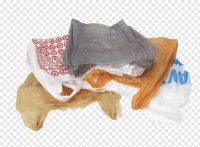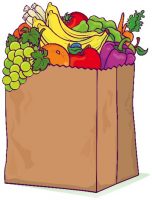Paper or Plastic?
 This week, New York rolled out its’ ban on plastic bags. We all find much joy in not using plastic bags anymore, but is paper any better? Most of us want to band paper bags too and make everyone use reuse bags. (If we had to buy them at the counter to get our food home I’ll bet we would stop forgetting, I know I would☹
This week, New York rolled out its’ ban on plastic bags. We all find much joy in not using plastic bags anymore, but is paper any better? Most of us want to band paper bags too and make everyone use reuse bags. (If we had to buy them at the counter to get our food home I’ll bet we would stop forgetting, I know I would☹
I say: let’s ban paper bags too. Research by the UK Environment Agency has found that paper bag production requires more raw materials and energy, and produces more waste than plastic bag production.
14 billion trees are cut down annually for paper packaging; plastic ones are by-products of oil refining. It takes four times more electricity to  produce a paper than a plastic carrier. Besides, paper bag production emits 70% more air and 50% more water pollutants than its synthetic counterpart.
produce a paper than a plastic carrier. Besides, paper bag production emits 70% more air and 50% more water pollutants than its synthetic counterpart.
A paper bag has to be used at least three times to decrease its impact on the environment to match that of a plastic bag used just once.
New York joined the long line of jurisdictions that have banned plastic bags. Now there are about 66 countries and counting, Bangladesh was the first. The terrifying pictures we have all sen of plugged rivers or dead animals (from ingesting them) have made a mark on us all.
Globally, we produce around 300 million tons of plastic waste per year, which the UN has helpfully equated to the weight of the entire human population.
 Only a small part of this is recycled or incinerated. Almost 80% is merely piling up around us, as litter in our streets, in garbage dumps, and our waters. Depending on the type of product, plastic takes up to 600 years to decompose, all the while contaminating the water we drink and the food we eat. The UN estimates that by 2050, we could have more plastic than fish in our oceans and seas.
Only a small part of this is recycled or incinerated. Almost 80% is merely piling up around us, as litter in our streets, in garbage dumps, and our waters. Depending on the type of product, plastic takes up to 600 years to decompose, all the while contaminating the water we drink and the food we eat. The UN estimates that by 2050, we could have more plastic than fish in our oceans and seas.
Not all is lost, the reusable tote: Many people already have the habit of keeping them handy in our cars, handbags or backpacks and offices for that surprise trip to the grocery. The Environment Agency study estimated that reusable synthetic bags should be used up to 30 times to match the environmental impact of a plastic grocery bag used once, and canvas sacks at least 330 times. The idea is to go as natural as possible and to use them for years. Not only that, you can have them custom made for advertising your website, your business, your grandchildren, just about anything.

Recent Comments